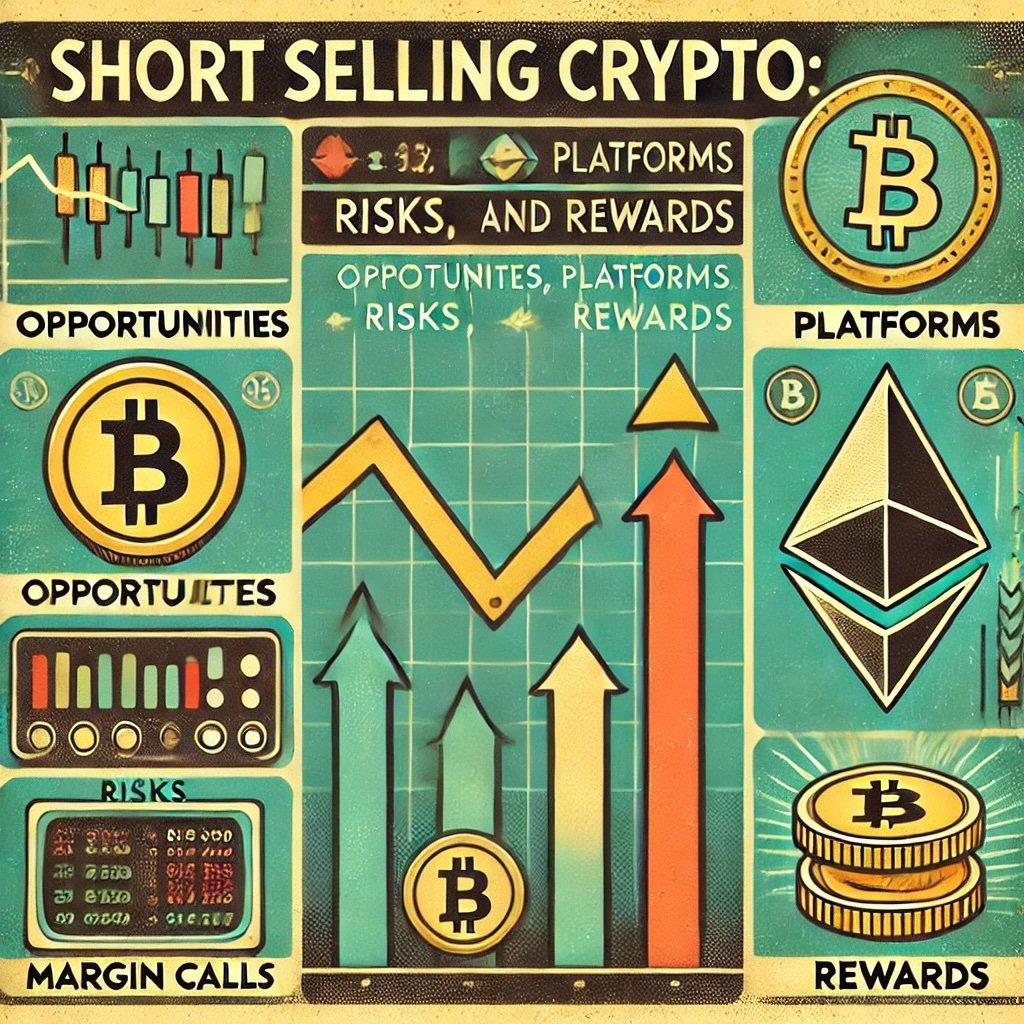Let’s start with the man who needs little introduction in the world of investing – Warren Buffett. Born in Omaha, Nebraska, in 1930, Buffett is often fondly referred to as the “Oracle of Omaha” due to his uncanny ability to predict market movements and his unrivaled investment acumen. As the chairman and CEO of Berkshire Hathaway, Buffett has consistently been one of the wealthiest individuals in the world, amassing a fortune primarily through savvy investments.

A disciple of the legendary Benjamin Graham, known as the “father of value investing,” Buffett absorbed Graham’s principles and added his own twist. This blend of wisdom has guided Buffett through the ebbs and flows of the financial markets, making him one of the most successful investors in history. But his success is not just about financial acumen and investment strategies; it’s equally about his understanding of human nature and the psychology of investing.

Importance of Psychology in Investing
At first glance, investing seems to be all about numbers, data, and cold hard facts. However, those who dive deeper into its essence know that investing is as much an emotional journey as it is a financial one. It is a constant battle between fear and greed, between the desire for immediate gratification and the discipline of patience, between following the crowd and forging your own path.
Why is this psychological aspect so important in investing? Because human beings, with all their biases, emotions, and cognitive limitations, drive the markets. In the throes of euphoria or panic, investors can push asset prices far above or below their intrinsic values. This is where the cool-headed, psychologically astute investor can capitalize.
Warren Buffett once said, “Be fearful when others are greedy and greedy when others are fearful.” This quote isn’t just a witty remark; it encapsulates a profound understanding of investor psychology. Let’s journey into the mind of this investing maestro to understand how his psychological insights contribute to his legendary success. Tighten your seatbelts and prepare for an exciting ride!

The Emotional Roller Coaster of Investing
Investing can often feel like riding a roller coaster without a safety harness. One moment, you’re skyrocketing towards the heavens, relishing the thrill of seeing your investments grow. The next, you’re hurtling down at breakneck speed, your stomach churning as you watch your hard-earned money evaporate. It’s a constant dance between two potent emotions: fear and greed.
Examination of Common Emotions Experienced by Investors
Greed sparks during bull markets, when rising asset prices create a sense of euphoria. Everyone seems to be making money, and the fear of missing out fuels the desire to jump on the bandwagon. However, this reckless pursuit can lead investors to ignore risks and overpay for assets.
On the flip side, when the markets plunge, fear dominates. Investors panic, selling off their assets to avoid further losses. But this fear-driven selling often results in investors locking in their losses and missing out on subsequent recoveries.

How Buffett Maintains Emotional Equilibrium
So how does Warren Buffett, the master of the game, navigate this emotional roller coaster? The secret lies in his remarkable emotional equilibrium.
Buffett doesn’t let market euphoria sway him into making hasty decisions. During the dot-com boom, when most investors were euphoric about technology stocks, Buffett chose not to invest because he did not understand these companies. His caution proved prescient when the bubble burst and those who had invested heavily suffered significant losses.
Conversely, Buffett doesn’t panic when markets plummet. He views market downturns as opportunities to buy quality assets at discounted prices. During the 2008 financial crisis, while most investors were driven by fear, Buffett invested $5 billion in Goldman Sachs, a move that ultimately yielded significant returns.
Maintaining this emotional equilibrium is not about suppressing emotions but about acknowledging them and not allowing them to cloud your judgement. Buffett’s ability to separate his emotions from his investment decisions allows him to stay rational and focused, a trait that has significantly contributed to his investing success. As he often reminds us, “The stock market is a device for transferring money from the impatient to the patient.” Stay patient, stay composed, and let the markets play their course.
Understanding Behavioral Finance
To appreciate Buffett’s psychological acumen in investing, we need to delve into the world of behavioral finance. This field marries the principles of finance and psychology to understand how biases and irrational behaviors affect investment decisions.

Key Behavioral Finance Concepts
Let’s consider a few key concepts. First, there’s loss aversion, the idea that people fear losses more than they appreciate gains. This can lead investors to sell winning investments too soon to lock in gains and hold on to losing investments in the hope of breaking even.
Second, there’s overconfidence, the tendency to believe our abilities and knowledge are better than they actually are. Overconfident investors might undertake risky investments, thinking they can outsmart the market.
Third, we have anchoring, a bias where individuals rely heavily on an initial piece of information (the “anchor”) to make decisions. In investing, this could mean basing investment decisions on a stock’s past performance or its historical high, rather than its fundamental value.

How Buffett Navigates These Behavioral Biases
Now, how does Warren Buffett, our seasoned investing maestro, navigate these behavioral landmines? Well, it all goes back to his fundamental investing principles.
Buffett sidesteps loss aversion by focusing on the intrinsic value of a company rather than its stock price. He recognizes that market fluctuations are part and parcel of investing, and he doesn’t let temporary losses deter his long-term investment strategy. This allows him to hold onto good investments, even in downturns, and to let go of poor investments when necessary.
Buffett counters overconfidence with humility. Despite his outstanding track record, he acknowledges his mistakes and learns from them. Buffett famously quipped, “I bought a company in the mid-’90s called Dexter Shoe and paid $400 million for it. And it went to zero. I gave away all the stock. That was probably my dumbest [decision].”
Finally, Buffett tackles anchoring by doing his homework. He doesn’t base decisions on historical prices or market trends. Instead, he delves into financial statements, assesses the company’s leadership, and evaluates its competitive advantage. His investment in Apple, which was significantly different from his traditional investments, shows his ability to adapt his strategies based on thorough research rather than being anchored in past decisions.
By consciously avoiding these and other behavioral biases, Buffett keeps his investing approach grounded in rationality and facts, not emotions and fallacies. So, the next time you’re tempted to make a hasty investment decision, ask yourself: What would Warren do?

Embracing a Long-Term Perspective
Warren Buffett is no day trader. His investment horizon isn’t measured in days, weeks, or even months—it’s measured in years, sometimes decades.

Buffett’s Long-Term Investing Mindset
When Buffett buys shares in a company, he isn’t just buying a piece of paper whose value fluctuates on a screen. He’s buying a piece of a business, a stake in a real entity with real products, real people, and real potential. And businesses don’t grow overnight. They grow over years of nurturing, innovating, and delivering value.
When asked about his ideal holding period, Buffett famously replied, “Our favorite holding period is forever.” This quote perfectly encapsulates Buffett’s long-term investing mindset. He seeks companies that he believes will deliver value over the long term, and once he finds such companies, he sticks with them through thick and thin. This approach has been the cornerstone of his investing strategy and a significant factor behind his monumental success.

Psychological Benefits of Long-Term Investing
But embracing a long-term perspective isn’t just about financial returns; it also brings profound psychological benefits.
Firstly, it promotes patience and reduces stress. When you focus on the long term, you aren’t perturbed by daily market fluctuations. You don’t anxiously check your portfolio every few minutes, and you don’t lose sleep over a single bad day in the market. Your mental peace isn’t held hostage by the capricious whims of the market.
Secondly, it cultivates discipline. It keeps you committed to your investing strategy and prevents you from making impulsive decisions. Whether the market is soaring to dizzying heights or plummeting to frightening depths, you stay the course. You don’t get swept away by the tide of market euphoria or panic.
Lastly, it fosters a learning mindset. It encourages you to understand the companies you invest in, to research their fundamentals, their industry, and their potential. It shifts your focus from short-term price movements to long-term value creation, turning you into a better, wiser investor.
So, if you’re aiming for not just financial wealth but also psychological well-being, take a leaf out of Buffett’s book: Tune out the noise, focus on the long term, and let the magic of compounding do its work. Investing, after all, is a marathon, not a sprint. As Buffett reminds us, “Someone’s sitting in the shade today because someone planted a tree a long time ago.” Plant your financial trees now, nurture them over time, and you, too, can enjoy the shade in your future.
source: Financial Policy Council on YouTube
The Role of Patience and Discipline in Investing
Warren Buffett’s success story isn’t a tale of overnight riches. It’s a testament to the power of patience and discipline. They are the twin pillars that support his investing philosophy, enabling him to navigate the tumultuous waters of the stock market with steadfast resolve.

Buffett’s Emphasis on Patience and Discipline
Patience, in Buffett’s playbook, means waiting for the right opportunity. He likens investing to a game of baseball where there are no called strikes. You don’t have to swing at every pitch; you can wait for the perfect one. This philosophy is evident in his meticulous approach to selecting investments. He waits, sometimes for years, for the right company—at the right price—before he makes his move.
Discipline, on the other hand, is about sticking to your game plan, regardless of external noise. Buffett adheres to his fundamental investing principles—buying undervalued companies with solid business models and strong management teams—no matter the market conditions. He doesn’t let market trends, popular opinion, or attractive short-term opportunities sway him from his path.

Patience and Discipline Can Help Manage Emotional Responses to Market Fluctuations
Patience and discipline aren’t just strategic virtues; they are powerful psychological tools that can help manage emotional responses to market fluctuations.
When the market is surging, and everyone seems to be making easy money, it’s tempting to jump on the bandwagon and chase after hot stocks. But this is where patience comes in. By resisting the urge to follow the herd and waiting for the right opportunity, you can avoid costly mistakes.
Similarly, when the market is in freefall, and panic is in the air, it’s easy to let fear take over and sell off your investments. This is where discipline proves its worth. By sticking to your investment strategy and not letting fear drive your decisions, you can weather market downturns and even seize opportunities that such downturns may present.
Together, patience and discipline can help you stay calm, rational, and focused amidst market turmoil. They enable you to make thoughtful, informed decisions instead of impulsive, emotion-driven ones. They give you the fortitude to withstand short-term losses for long-term gains.
In the end, investing, as Buffett points out, is a test of character more than a test of intelligence. It’s about having the patience to wait for the right opportunity, the discipline to stick to your principles, and the courage to go against the crowd. So, equip yourself with these psychological shields, and you’ll be well on your way to not just surviving but thriving in the world of investing. As Buffett wisely counsels, “The stock market is designed to transfer money from the active to the patient.” So, let’s be patient, let’s be disciplined, let’s be Warren-esque.
source: Yahoo Finance on YouTube
The Importance of Independent Thinking
Warren Buffett is not one to blindly follow the crowd. He is a staunch advocate of independent thinking—a quality that sets him apart from the herd. Buffett isn’t interested in what everyone else is doing; he’s interested in what makes sense to him based on his own analysis and understanding.

Buffett’s Practice of Independent Thinking
Buffett’s practice of independent thinking is rooted in his deep conviction that the market can be irrational in the short term. He doesn’t let the prevailing sentiment or popular opinion dictate his investment decisions. Instead, he conducts thorough research, analyzes the fundamentals of businesses, and forms his own conclusions. This approach has allowed him to identify undervalued opportunities that others might overlook.

Role of Contrarian Thinking in Avoiding Herd Mentality in Investing
Independent thinking goes hand in hand with contrarian thinking—the ability to go against the prevailing tide of investor sentiment. Buffett’s success is built on his contrarian mindset, which enables him to avoid the pitfalls of herd mentality.
When the market is exuberant and everyone is chasing after the latest fad, Buffett maintains his calm and resists the temptation to jump on the bandwagon. He knows that herd mentality can drive prices far beyond a rational valuation, creating a bubble that is bound to burst. By avoiding these inflated investments, he sidesteps the risks associated with following the crowd.
Conversely, when pessimism pervades the market, and fear is rampant, Buffett remains undeterred. He sees opportunities where others see despair. His contrarian thinking allows him to seize attractive investments when the market sentiment is overwhelmingly negative.
Contrarian thinking is not about being contrarian for the sake of it; it’s about having the confidence to stand firm in your convictions, even when they go against the prevailing wisdom. It requires the ability to think independently, analyze situations objectively, and trust your own judgment.
By practicing independent and contrarian thinking, investors can escape the perils of herd mentality. They can avoid the irrational exuberance that leads to speculative bubbles and the irrational pessimism that causes panic selling. Instead, they can identify value where others fail to see it, and reap the rewards of their independent analysis.
In a world driven by noise, opinions, and trends, Buffett’s commitment to independent thinking serves as a reminder that true wisdom lies in the ability to think for oneself. As he once said, “I never attempt to make money on the stock market. I buy on the assumption that they could close the market the next day and not reopen it for five years.” So, embrace your independent thinking, dare to be contrarian, and chart your own path to investment success.
Case Studies: Buffett’s Psychological Resilience in Action
Detailed Analysis of Key Investments where Buffett’s Psychological Strength Played a Crucial Role:
- The 2008 Financial Crisis: The 2008 financial crisis was a defining moment for Buffett and showcased his psychological resilience. While fear and panic gripped the markets, Buffett remained calm and composed. Instead of succumbing to the prevailing sentiment, he saw an opportunity to invest in companies with strong fundamentals that were trading at significant discounts. Buffett’s bold moves included injecting $5 billion into Goldman Sachs and acquiring stakes in Bank of America and General Electric. These investments paid off handsomely as the markets recovered, demonstrating his ability to make rational decisions amid extreme uncertainty.
- The Dot-Com Bubble: During the late 1990s, the dot-com bubble reached its zenith, with technology stocks soaring to astronomical heights. Many investors were swept up in the euphoria and disregarded traditional valuation metrics. However, Buffett remained skeptical, recognizing that many of these companies lacked sustainable business models and realistic earnings prospects. Despite facing criticism for his reluctance to participate in the tech frenzy, Buffett’s disciplined approach protected him from significant losses when the bubble eventually burst.

Lessons Learned from these Case Studies
- Stay Calm in Times of Crisis: The case of the 2008 financial crisis teaches us the importance of maintaining psychological resilience during turbulent times. By remaining calm and collected, Buffett was able to see opportunities where others only saw chaos. Keeping emotions in check allows investors to make rational decisions that can lead to significant gains when markets rebound.
- Stick to Fundamental Principles: Buffett’s skepticism during the dot-com bubble highlights the significance of adhering to fundamental investing principles. While it may be tempting to chase after the latest trends, a disciplined focus on value, sustainable business models, and strong earnings potential can protect investors from participating in speculative bubbles.
- Trust Your Research and Analysis: Buffett’s success is a testament to the power of thorough research and independent thinking. By trusting his own analysis, Buffett was able to avoid the herd mentality and make informed investment decisions. This reinforces the importance of conducting diligent research and maintaining conviction in one’s investment thesis.
- Long-Term Perspective Pays Off: Both case studies demonstrate the value of maintaining a long-term perspective. Buffett’s ability to weather short-term market volatility and focus on the intrinsic value of companies allowed him to capitalize on opportunities that aligned with his long-term investment philosophy.
In essence, these case studies emphasize the importance of psychological resilience, discipline, independent thinking, and a long-term perspective in investing. Buffett’s ability to navigate through challenging times and stick to his convictions serves as a reminder that successful investing requires both a solid understanding of market dynamics and the psychological strength to stay the course when others falter. As Buffett himself advises, “The stock market is a no-called-strike game. You don’t have to swing at everything – you can wait for your pitch.” So, be patient, be disciplined, and be prepared for the right opportunities to present themselves.
Implementing Buffett’s Psychological Insights in Personal Investing
Practical Tips for Managing Emotions in Investing:
- Focus on the Long Term: Embrace a long-term mindset like Buffett. Understand that investing is a marathon, not a sprint. Instead of getting caught up in short-term market fluctuations, keep your eyes on the bigger picture and the long-term potential of your investments.
- Do Your Homework: Conduct thorough research and due diligence before making investment decisions. Understand the fundamentals of the companies you’re investing in, their competitive advantage, and their potential for sustainable growth. This knowledge will give you confidence in your investments and help you resist emotional impulses.
- Set Clear Investment Goals: Establish clear investment goals and stick to your plan. Define your risk tolerance, time horizon, and financial objectives. Having a well-defined investment strategy will provide guidance and prevent impulsive decision-making based on emotions.
- Diversify Your Portfolio: Buffett emphasizes the importance of diversification. By spreading your investments across different asset classes, sectors, and geographical regions, you reduce the risk of being overly exposed to a single investment or market event. Diversification helps to manage emotional responses to individual stock fluctuations and promotes a balanced, resilient portfolio.

Developing Habits for Long-Term Investing Success
- Practice Patience: Develop the habit of patience in investing. Understand that wealth creation takes time and that market fluctuations are inevitable. Avoid succumbing to impulsive reactions driven by fear or greed. Stay focused on your long-term goals and maintain discipline in sticking to your investment plan.
- Maintain a Margin of Safety: Buffett’s principle of buying undervalued assets with a margin of safety can help protect against downside risks. Develop the habit of seeking investments that offer a favorable risk-reward ratio. This approach can provide a cushion during market downturns and offer the potential for significant returns.
- Continuously Educate Yourself: Invest in your own knowledge and education. Keep learning about investing principles, market trends, and economic factors. Developing a habit of continuous learning will enhance your understanding of the market, sharpen your analytical skills, and enable you to make more informed investment decisions.
- Stay Disciplined: Consistency and discipline are key to long-term investing success. Develop the habit of sticking to your investment strategy even during periods of market volatility. Avoid making knee-jerk reactions based on short-term market movements or the noise of media headlines.
Remember, implementing Buffett’s psychological insights requires discipline and self-awareness. By managing your emotions, conducting thorough research, setting clear goals, and developing disciplined habits, you can align your investing approach with Buffett’s principles and increase your chances of long-term investing success.
As Buffett advises, “The most important quality for an investor is temperament, not intellect.” So, cultivate the right temperament, harness your psychological strengths, and let the wisdom of Buffett guide you on your investing journey.
source: The Long-Term Investor on YouTube

Conclusion: Key psychological insights from Buffett’s investing approach
Warren Buffett’s investing approach is not just about numbers and financial analysis; it’s deeply rooted in an understanding of human psychology. Throughout his illustrious career, Buffett has imparted valuable psychological insights that can significantly impact one’s investing success:
- Emotional Resilience: Buffett’s ability to maintain emotional equilibrium in the face of market fluctuations teaches us the importance of managing emotions such as fear and greed. By staying calm and rational, we can make more informed investment decisions.
- Independent Thinking: Buffett’s emphasis on independent thinking encourages us to avoid herd mentality and make our own judgments based on thorough research and analysis. By thinking critically and not being swayed by prevailing opinions, we can identify unique opportunities.
- Patience and Discipline: Buffett’s emphasis on patience and discipline helps us navigate the emotional roller coaster of investing. By taking a long-term perspective and sticking to our investment strategy, we can resist impulsive decisions and achieve sustainable returns.
- Contrarian Thinking: Buffett’s contrarian mindset teaches us to go against the crowd when necessary. By being willing to challenge prevailing sentiments and think differently, we can identify undervalued opportunities that others may overlook.

Final Thoughts on the Value of Psychology in Successful Investing
The value of psychology in successful investing cannot be overstated. Investing is inherently a human endeavor, and understanding the behavioral biases and emotions that drive market movements is crucial. By incorporating psychological insights into our investing approach, we can improve our decision-making process and increase our chances of long-term success.
Psychology helps us manage emotions, avoid impulsive actions, and stay focused on our investment goals. It teaches us to remain calm during market turbulence and to make rational decisions based on thorough analysis rather than emotional reactions.
Moreover, psychology empowers us to think independently, challenge conventional wisdom, and identify opportunities that others may miss. It encourages us to be patient, disciplined, and steadfast in our investment strategies, allowing us to capitalize on long-term value creation.
In the end, successful investing is not just about numbers and financial analysis; it’s about understanding ourselves and the dynamics of the market. By embracing the psychological insights of investing legends like Warren Buffett, we can cultivate the right mindset, navigate the challenges of the market, and achieve our financial goals.
So, as you embark on your investing journey, remember the lessons of Buffett’s psychological insights: stay resilient, think independently, exercise patience and discipline, and let psychology become a powerful ally in your pursuit of investment success.
Important Information
Comprehensive Investment Disclaimer:
All content provided on this website (including but not limited to portfolio ideas, fund analyses, investment strategies, commentary on market conditions, and discussions regarding leverage) is strictly for educational, informational, and illustrative purposes only. The information does not constitute financial, investment, tax, accounting, or legal advice. Opinions, strategies, and ideas presented herein represent personal perspectives, are based on independent research and publicly available information, and do not necessarily reflect the views or official positions of any third-party organizations, institutions, or affiliates.
Investing in financial markets inherently carries substantial risks, including but not limited to market volatility, economic uncertainties, geopolitical developments, and liquidity risks. You must be fully aware that there is always the potential for partial or total loss of your principal investment. Additionally, the use of leverage or leveraged financial products significantly increases risk exposure by amplifying both potential gains and potential losses, and thus is not appropriate or advisable for all investors. Using leverage may result in losing more than your initial invested capital, incurring margin calls, experiencing substantial interest costs, or suffering severe financial distress.
Past performance indicators, including historical data, backtesting results, and hypothetical scenarios, should never be viewed as guarantees or reliable predictions of future performance. Any examples provided are purely hypothetical and intended only for illustration purposes. Performance benchmarks, such as market indexes mentioned on this site, are theoretical and are not directly investable. While diligent efforts are made to provide accurate and current information, “Picture Perfect Portfolios” does not warrant, represent, or guarantee the accuracy, completeness, or timeliness of any information provided. Errors, inaccuracies, or outdated information may exist.
Users of this website are strongly encouraged to independently verify all information, conduct comprehensive research and due diligence, and engage with qualified financial, investment, tax, or legal professionals before making any investment or financial decisions. The responsibility for making informed investment decisions rests entirely with the individual. “Picture Perfect Portfolios” explicitly disclaims all liability for any direct, indirect, incidental, special, consequential, or other losses or damages incurred, financial or otherwise, arising out of reliance upon, or use of, any content or information presented on this website.
By accessing, reading, and utilizing the content on this website, you expressly acknowledge, understand, accept, and agree to abide by these terms and conditions. Please consult the full and detailed disclaimer available elsewhere on this website for further clarification and additional important disclosures. Read the complete disclaimer here.





